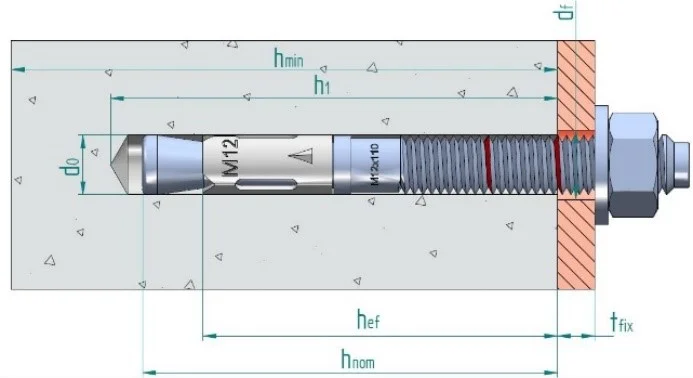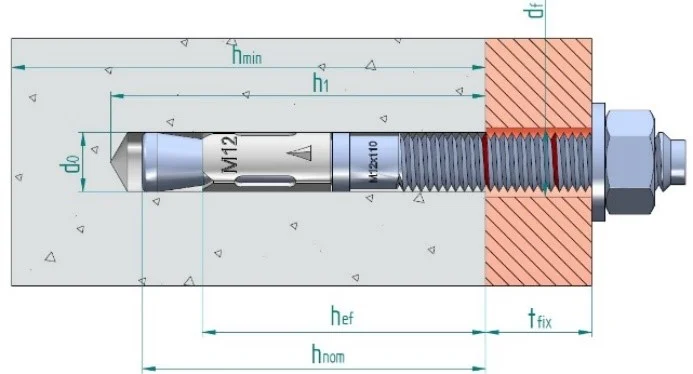The length of an expansion anchor MT is selected according to 2 parameters:
- Thickness of the anchor plate to be fixed (tfix)
- Minimum installation depth (hnom). Depending on the diameter of the anchor, there can be 2 depth options. These are provided in the European homologation. As a rule of thumb, the greater the installation depth, the greater the fixing resistance, but the anchorage must be longer.
The total length of the anchor (L) must be: L ≥ tfix + hnom


- hef – Effective depth of the anchor: Depth at which the body of the anchor is fixed to the concrete absorbing the greatest tensile load.
- h1 – Hole depth: Minimum depth of the hole to be made to install the expansion anchor MT.
- hnom – Installation depth in the concrete: Depth of the anchor that is inserted into the hole made in the concrete.
- hmin – Minimum thickness of the concrete element: Minimum thickness of concrete necessary for the installation.
- tfix – Anchor plate thickness: Thickness of the plate to be fixed to the concrete.
Equally, the following must be taken into account for the installation:
- The minimum thickness of the base material (hmin)
- Minimum distances between anchors and edge (cmin / smin)
- The depth of the hole in the concrete (h1); this must be less than the one for the concrete screws as there is no need to accommodate the dust and concrete remains when creating the female thread in the concrete made during the installation phase
- Fixing resistance, which must be compatible with the load to be fixed
These values are provided in the corresponding European homologation and in the technical documentation.
Latest revision: FAQ35 rev0

